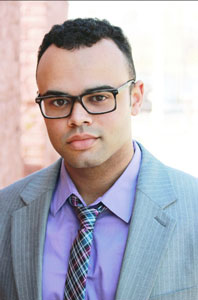 Written by Robert King
Written by Robert King
I’m not light enough to get seen for Caucasian roles, and not dark enough for Black roles. So, where do I fit in?
This was the start of a conversation I recently had with my manager after being told that I would not be seen for yet another audition because I wasn’t “dark” enough.
I realize all actors get “typed” out from time to time, but what do you do when there isn’t a “type” for you to be typed into?
Being an actor of mixed race, I was super excited when I started hearing the term “ethnically ambiguous” thrown around enthusiastically as the new thing in the casting world. “Finally,” I thought, “the fact that I can pass for Italian, Indian, Greek, Hispanic, or plenty of other ethnicities is going to increase my casting potential exponentially. But, after a few years of that term being around, and hyping up the ethnically ambiguous population of actors out there, all that glitters might only be our golden tans.
“The first thing we need to do is own up that it’s an issue,” says Liz Ortiz-Mackes, casting director, producer, and champion of diversity in the arts. It’s human nature to want to break things down and put them into a certain category. The word “ambiguous” can sound exotic, but what it means is unclear or inexact, and as actors, one of our biggest goals should be to strive for specificity. “Ethnically Ambiguous” can close off choices because it’s meaning is so vague and obscure. What we need to be doing is “promoting inclusion,” according to Ortiz-Mackes. That’s why when she is casting or producing projects, she prefers to shape roles as being open to “multi-culti”, or multi-cultural, because it opens up more opportunities, and has a more inclusive feeling.
But, the argument remains, aren’t we just trading one box for another? For us “racial in-betweeners” the challenge isn’t going away anytime soon. So, we need to know how to deal with it.
It would be easy to blame the casting directors, writers, producers, or, even your parents for coming down with a case of Jungle Fever way back when. But, none of that will get you work, so what’s the point?
The point of this article is not to create a “whoa is me” attitude. But, to remind actors of mixed race (or any actor that doesn’t fit easily into a box) that we must continue to take charge of our own careers. If you aren’t getting seen right now, because people don’t know where you fit, create your own work. Like, Mrs. Ortiz-Mackes says, “find your own path, and collaborate with like-minded people.”
I originally started writing to give myself work. I wrote my solo show, Halfrican-American, to deal with my own experiences and questions about race, not only in my art but in my entire life. Writing and performing that show was the most fulfilling thing I’ve ever done, and because I defined who I was and how I wanted to be seen in it, it has helped me kick down at least one of the walls of my box. There are still three more, and they can be pretty frustrating and intimidating to look at. But, I have to keep going. We have to keep working to get out of this box.
Robert King is a writer/actor living in NYC. His performing career began with stand-up comedy and improvisation in his home state of New Jersey. As an actor he has been seen on various television shows from Law & Order:SVU to One Life to Live, independent films, and on stage with his theater company, The Seeing Place Theater. The Manhattan Repertory Theatre produced Robert’s first play, Boys Cry Too, and his solo show, Halfrican-American was performed Off-Broadway at The Barrow Group Theatre. He recently wrote and produced the sitcom Life of the Party, and the new web-series, Common Sense Police. Robert wears many hats, including actor, writer, director, and producer. He is the cofounder of M.R.King Productions, an independent company focused on showcasing emerging artistic talent. He has a great Will Smith impersonation, but more commonly gets mistaken for Carlton.